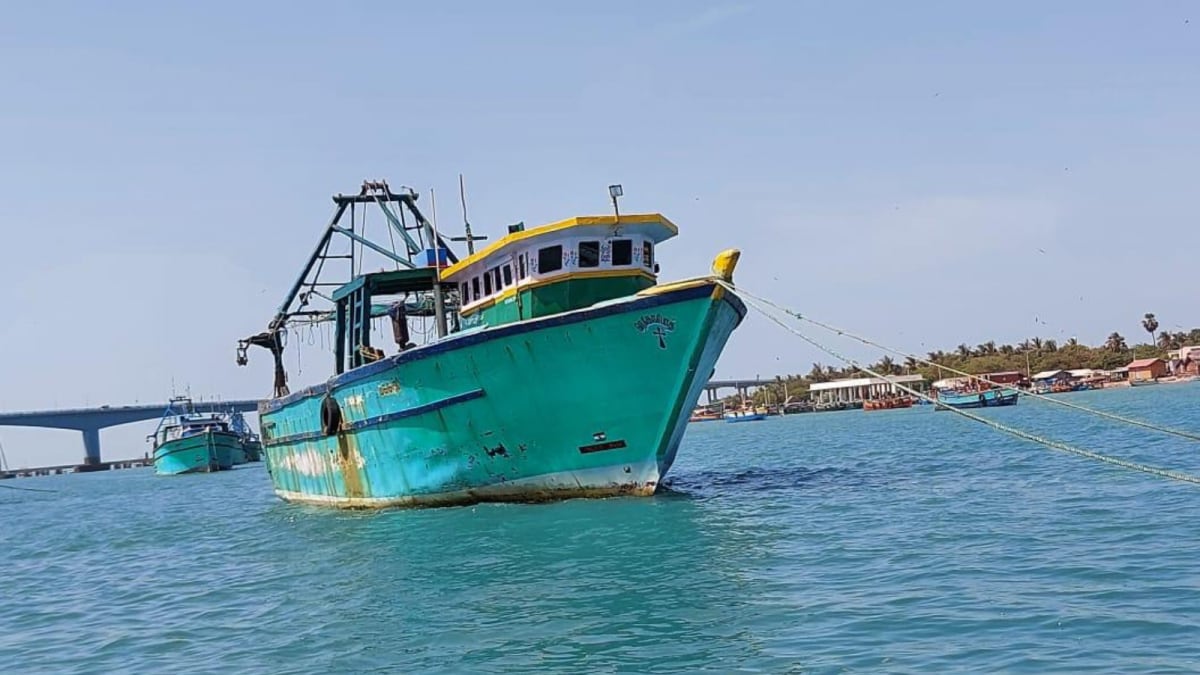 |
|
The escalating tensions between India and Sri Lanka reached a new peak on January 28, 2025, following an incident involving the Sri Lankan Navy's alleged firing upon Indian fishermen. The incident, which occurred near Delft Island in the early hours of the morning, resulted in injuries to several Indian fishermen and prompted a swift and strong response from the Indian government. The Ministry of External Affairs (MEA) issued a statement confirming the event, detailing the injuries sustained by the fishermen, and outlining the steps taken to address the situation. The gravity of the situation underscores the long-standing and often fraught relationship between the two nations regarding fishing rights in the Palk Strait. This area, rich in marine resources, has been a source of contention for decades, with both countries claiming sovereignty over overlapping fishing zones. The incident serves as a stark reminder of the need for a comprehensive and peaceful resolution to these maritime disputes, before further escalations threaten regional stability.
The MEA's statement clearly condemned the use of force against the Indian fishermen. The statement explicitly stated that the use of force was unacceptable under any circumstances. This condemnation reflects India's consistent position on the humanitarian treatment of fishermen, regardless of nationality. The statement also highlighted the injuries sustained by the fishermen, emphasizing the severity of the situation and the need for immediate medical attention. Furthermore, the statement highlighted that the Indian Consulate officials visited the injured fishermen in Jaffna, providing medical assistance and offering support to the affected families. This humanitarian response underscores India's commitment to ensuring the welfare of its citizens, even amidst international disputes. The prompt response also underscores the seriousness with which India views these incidents and its commitment to protecting its citizens' rights.
The summoning of the Sri Lankan High Commissioner to the Ministry of External Affairs in New Delhi represents a significant diplomatic escalation. This action demonstrates India's displeasure with the actions of the Sri Lankan Navy and its determination to secure accountability for the incident. The lodging of a formal protest reinforces India's stance on the matter and its expectation that Sri Lanka will take appropriate measures to prevent future occurrences. The simultaneous action of the Indian High Commission in Colombo raising the matter with the Sri Lankan Ministry of Foreign Affairs further underscores the seriousness of the situation and the coordinated effort by the Indian government to address the issue at both the diplomatic and humanitarian levels. This dual approach ensures that the matter is handled effectively and that the concerns of the Indian government are conveyed clearly to the highest levels of the Sri Lankan government.
The incident highlights the critical need for improved communication and cooperation between India and Sri Lanka in managing their shared maritime boundaries. The lack of clear demarcation of fishing zones and the frequent instances of cross-border fishing activities have consistently created friction. Existing agreements between the two governments regarding the treatment of fishermen need to be strengthened and rigorously enforced. This includes clear protocols on the apprehension of fishermen, emphasizing humane treatment and preventing the use of excessive force. A more robust mechanism for addressing grievances and resolving disputes peacefully is also crucial. This might involve joint patrols, better communication channels, and perhaps even the establishment of a joint mechanism for conflict resolution. Without such measures, similar incidents are likely to continue, escalating tensions and potentially harming the relationship between the two nations.
Looking ahead, the resolution of this incident and the prevention of future occurrences require a multifaceted approach. This approach needs to focus on not only the immediate concerns of the injured fishermen and their families but also on the broader issue of establishing a stable and peaceful maritime environment in the Palk Strait. Open and honest dialogue between the two governments is essential. This dialogue must focus on creating a clear and legally binding framework that defines fishing rights in the disputed areas. The involvement of international organizations with expertise in maritime boundary delimitation could also be beneficial in mediating and facilitating the process. Ultimately, a lasting solution hinges on the mutual commitment of both India and Sri Lanka to de-escalate tensions, adhere to international law, and prioritize the well-being of their respective fishing communities.
The incident serves as a reminder of the complex interplay between national security, economic interests, and humanitarian concerns in managing maritime disputes. Finding a balance between enforcing national laws and ensuring the safety and well-being of fishermen is a significant challenge. The ongoing dialogue and diplomatic efforts between India and Sri Lanka will be crucial in achieving a lasting solution. The international community also has a role to play in encouraging both nations to engage in constructive dialogue and find a mutually acceptable solution. The resolution of this issue holds significant implications for regional stability and the broader relationship between India and Sri Lanka. A peaceful and equitable solution that prioritizes the welfare of fishermen and fosters good neighborly relations is in the best interests of both countries.
Furthermore, the long-term implications of this incident extend beyond the immediate concerns. The incident carries the potential to further strain relations between the two nations, impacting other aspects of their bilateral ties, including trade, economic cooperation, and cultural exchange. A failure to resolve the issue amicably could lead to further incidents and potentially even greater escalations. Therefore, a swift and decisive resolution is not only crucial for the welfare of the affected fishermen but also for safeguarding the broader interests of both India and Sri Lanka. This requires a commitment from both sides to address the root causes of the conflict and to work collaboratively towards a sustainable and peaceful solution that respects the rights and livelihoods of all concerned.
Source: New Delhi Summons Sri Lankan Envoy, Lodges Protest Over Firing On Indian Fishermen
